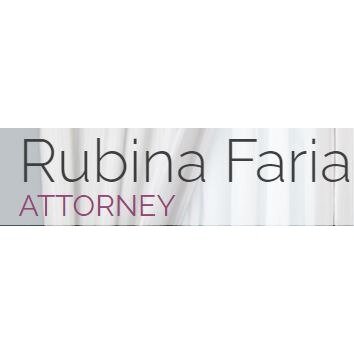Best Elder Abuse Law Lawyers in Funchal
Share your needs with us, get contacted by law firms.
Free. Takes 2 min.
List of the best lawyers in Funchal, Portugal
About Elder Abuse Law in Funchal, Portugal
Elder abuse law in Funchal, Portugal is part of a broader national framework aimed at safeguarding the rights and well-being of older individuals. It addresses various forms of abuse, including physical, emotional, financial, and neglect, within both family and institutional settings. Legal measures are entrenched in the Portuguese Penal Code and other protective legislation, stipulating strict penalties for perpetrators of elder abuse. As with many other legal matters in Portugal, these laws are enforced by the police and the judiciary, with additional support from social services and advocacy organizations.
Why You May Need a Lawyer
If you suspect elder abuse, whether in a personal context or within an institutional setting, it is crucial to seek legal advice. Common situations where legal assistance might be required include negotiating with institutions on behalf of an elder, pursuing civil or criminal actions against perpetrators, handling cases of financial exploitation by family members or caregivers, and understanding your rights and responsibilities if appointed as a guardian or power of attorney for an elder. Legal counsel ensures that all actions comply with Portuguese law and that the elder's rights and well-being are prioritized.
Local Laws Overview
In Funchal and the wider region of Madeira, elder abuse laws are governed by national laws supplemented by regional regulations tailored to local needs. Key aspects include:
- Recognition and Reporting: Elder abuse must be recognized in various forms, and there are legal obligations to report certain types of abuse.
- Protective Orders: The court can issue protective orders to prevent further abuse or contact with the abuser.
- Penalties for Abuse: Physical and financial abuses are subject to criminal prosecution with varying degrees of penalties based upon the severity of the offense.
- Institutional Accountability: Nursing homes and care facilities are legally obliged to maintain standards of care and report any cases of abuse.
- Financial Exploitation: Special provisions address fraudulent activities targeting an elder's financial resources.
Frequently Asked Questions
1. What constitutes elder abuse under Portuguese law?
Elder abuse includes physical harm, emotional distress, neglect, financial exploitation, and any other actions that negatively impact an elder's well-being.
2. How can I report an elder abuse case in Funchal?
Reports can be made to local authorities, the police, or social services. It is important to provide detailed information and evidence where possible.
3. Are there any specific organizations in Funchal that support elder abuse victims?
Certain regional organizations and branches of national organizations specifically assist elder abuse victims, offering resources and support.
4. Can elder abuse cases be settled outside of court?
Some cases, particularly those involving family members, might be resolved through mediation or agreement, but severe cases generally require legal proceedings.
5. What are the penalties for someone found guilty of elder abuse?
Penalties vary but can include fines, imprisonment, and further legal liabilities, based on the nature and severity of the abuse.
6. Can an elder be removed from their home against their will?
Only under specific legal circumstances, such as a court order, can an elder be removed, typically if their well-being is at direct risk.
7. Are there specific lawyers who specialize in elder abuse in Funchal?
Yes, Funchal has legal practitioners specializing in elder law, including abuse cases, who can offer expert advice and representation.
8. How does financial exploitation of elders get identified?
Financial exploitation is identified by irregularities in financial transactions, unauthorized spending, or sudden changes in financial documents.
9. Can neglected elders receive state support?
The state and regional authorities offer various support services, including subsidized care or financial aid to assist neglected elders.
10. What should I do if I suspect an elder is being abused in a nursing home?
Report the suspicion to local authorities or social services. It's crucial to document all evidence and testimonies related to the abuse.
Additional Resources
For those seeking more information or assistance, several resources can be helpful:
- Instituto de Segurança Social (Social Security Institute): Provides support and resources related to elder care and protection.
- GNR (National Republican Guard) and PSP (Public Security Police): Both organizations take reports of elder abuse seriously.
- Madeira Regional Health Service: Offers health-related support and investigates health-centric abuse or neglect.
- Local Non-Governmental Organizations: Various NGOs focus on elder rights and advocacy.
Next Steps
If you need legal assistance in elder abuse law in Funchal, your first step should be to consult with a specialized lawyer who can provide tailored advice and support based on your circumstances. It's important to act swiftly to protect the rights and well-being of the elder involved. Documentation, credible witnesses, and evidence play a key role in strengthening legal cases, so ensure you gather as much pertinent information as possible. Additionally, consider reaching out to local social services to initiate parallel support and protection measures while legal procedures are underway.
Lawzana helps you find the best lawyers and law firms in Funchal through a curated and pre-screened list of qualified legal professionals. Our platform offers rankings and detailed profiles of attorneys and law firms, allowing you to compare based on practice areas, including Elder Abuse Law, experience, and client feedback.
Each profile includes a description of the firm's areas of practice, client reviews, team members and partners, year of establishment, spoken languages, office locations, contact information, social media presence, and any published articles or resources. Most firms on our platform speak English and are experienced in both local and international legal matters.
Get a quote from top-rated law firms in Funchal, Portugal — quickly, securely, and without unnecessary hassle.
Disclaimer:
The information provided on this page is for general informational purposes only and does not constitute legal advice. While we strive to ensure the accuracy and relevance of the content, legal information may change over time, and interpretations of the law can vary. You should always consult with a qualified legal professional for advice specific to your situation.
We disclaim all liability for actions taken or not taken based on the content of this page. If you believe any information is incorrect or outdated, please contact us, and we will review and update it where appropriate.









